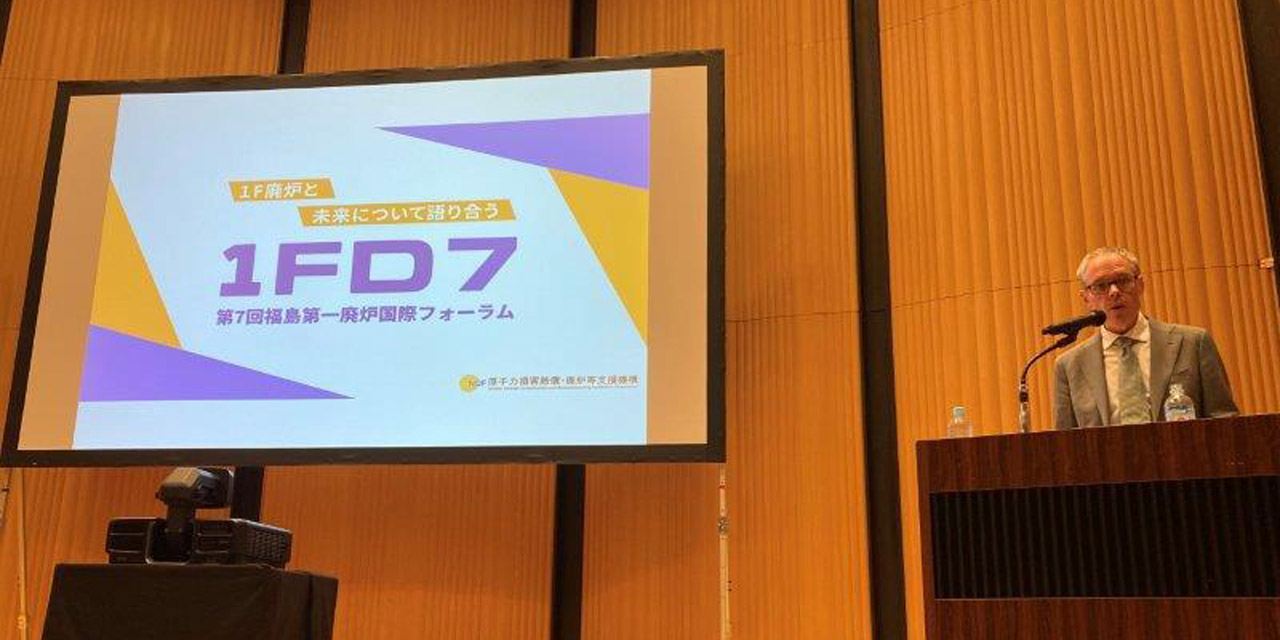New plant review ordered following Japan’s earthquakes
Japanese regulators have ordered further review at a nuclear power plant in central Japan following a series of deadly earthquakes that rocked the country on New Year’s Day.

A message from Goodway Technologies
Optimizing Maintenance Strategies in Power Generation: Embracing Predictive and Preventive Approaches
Japanese regulators have ordered further review at a nuclear power plant in central Japan following a series of deadly earthquakes that rocked the country on New Year’s Day.
A series of earthquakes on New Year’s Day that resulted in a tsunami warning and prompted evacuations from Japan’s west coast caused no irregularities at the country’s nuclear plants, Japanese officials have reported.

Senior advisor Ike White and others with the Department of Energy’s Office of Environmental Management traveled to Japan this week to attend the 7th International Forum on the Decommissioning of the Fukushima Daiichi Nuclear Power Station.
An approach to future plant fabrication and siting suitable for many reactor types and scales, with large potential worldwide benefits

In recent years, the rate of building new nuclear power plants has slowed internationally except in some rapidly developing countries. In Western countries that have considerable experience with nuclear power, completion of new projects on time and on budget has become more difficult. Shipyard-fabricated plants may offer a new direction for meeting international needs and responding to requirements for better cost control and safety. In this article we offer an overview of the floating nuclear power plant concept, including experience with it to date and its key engineering and strategic features, along with related uncertainties and needed conditions for future projects to be successful.

Today’s #ThrowbackThursday post looks back at some of Nuclear News’s reporting on the Fukushima Daiichi accident, which was initiated 11 years ago tomorrow. The news reporting includes the initial coverage of the event from the pages of Nuclear News in April 2011 and the in-depth coverage of the 2011 ANS Annual Meeting, where special sessions focused on the accident.
 Nuclear power is an important component in the fight against climate change, but independent regulation is needed to gain the public’s---and governments'---trust, according to a March 6 article in The Economist, “Nuclear power must be well regulated, not ditched.”
Nuclear power is an important component in the fight against climate change, but independent regulation is needed to gain the public’s---and governments'---trust, according to a March 6 article in The Economist, “Nuclear power must be well regulated, not ditched.”
The article reviews the negative effect that the Fukushima Daiichi accident had on the worldwide nuclear industry following the earthquake and tsunami in March 2011. Japan’s direct economic cost, estimated at more than $200 billion, was larger than that of any other natural disaster the world has seen, according to the article.

The black star represents the epicenter of the February 13 earthquake. Image: USGS
There has been no off-site impact from the February 13 earthquake that struck off the east coast of Japan near the Fukushima Daiichi nuclear power plant, Tokyo Electric Power Company (TEPCO) reported on February 19. The earthquake, however, has caused a water leakage from two of the site's primary containment vessels (PCVs).
A nuclear alert order was issued by the plant about 20 minutes after the earthquake, and the water treatment and transfer facilities were shut down. Inspections after the event revealed no anomalies and the nuclear alert order was rescinded on February 14.
The nuclear plant in Fukushima Prefecture in northeastern Japan is now undergoing decommissioning.
The seismic event was huge and was felt all over the world. With a moment magnitude of over 9.0, the earthquake and was the fourth largest ever in the more than 100 years of recorded history. Huge land masses shifted as much as 2.4 meters, and the rotation of the earth was changed so that days were suddenly just a little (but measurable) bit shorter. It had sped up the world.